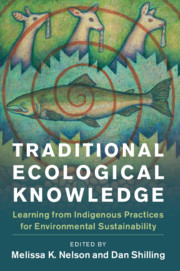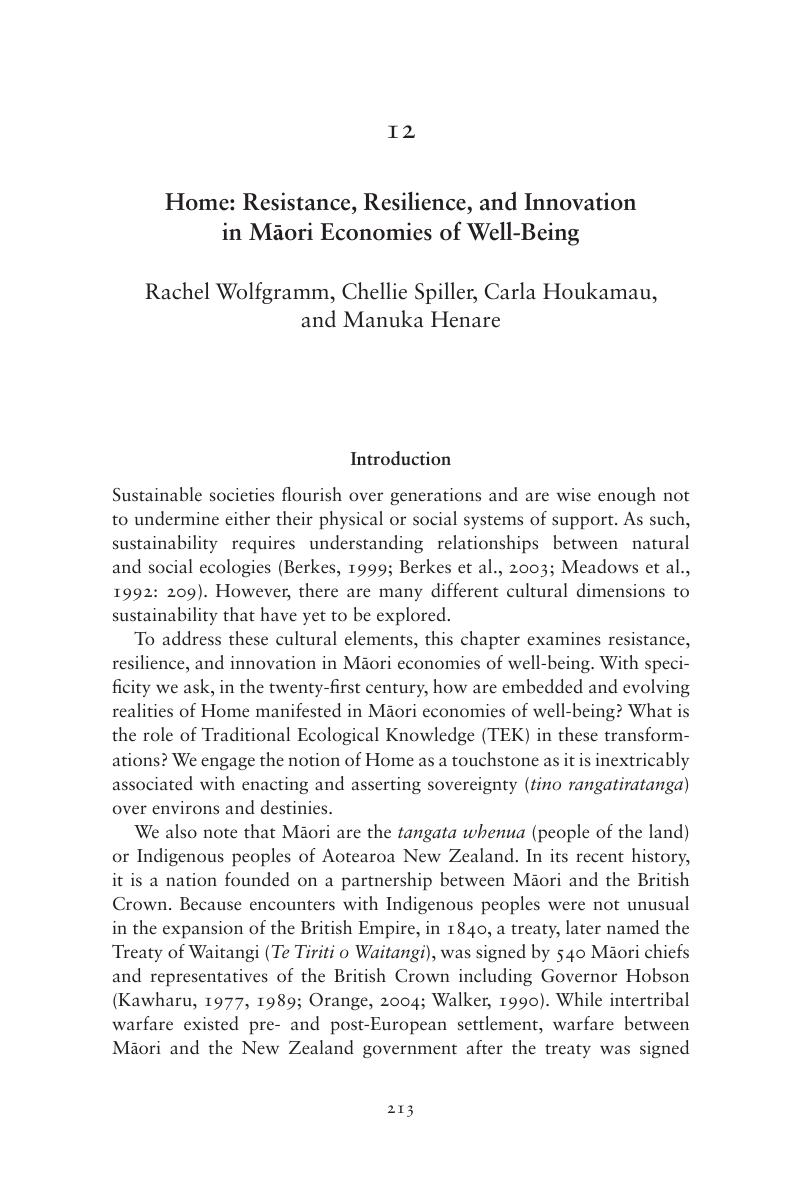 Traditional Ecological Knowledge
Traditional Ecological Knowledge Book contents
- Traditional Ecological Knowledge
- New Directions in Sustainability and Society
- Traditional Ecological Knowledge
- Copyright page
- Contents
- Editors and Contributors
- Preface
- Part I Introduction to Key Concepts and Questions
- Part II Bedrock
- Part III Extended Web
- Part IV Global and Legal Implications of Indigenous Sustainability
- 12 Home: Resistance, Resilience, and Innovation in Māori Economies of Well-Being
- 13 Indigenous Peoples and “Cultural Sustainability”: The Role of Law and Traditional Knowledge
- 14 Conclusion
- Index
- References
12 - Home: Resistance, Resilience, and Innovation in Māori Economies of Well-Being
from Part IV - Global and Legal Implications of Indigenous Sustainability
Published online by Cambridge University Press: 21 September 2018
- Traditional Ecological Knowledge
- New Directions in Sustainability and Society
- Traditional Ecological Knowledge
- Copyright page
- Contents
- Editors and Contributors
- Preface
- Part I Introduction to Key Concepts and Questions
- Part II Bedrock
- Part III Extended Web
- Part IV Global and Legal Implications of Indigenous Sustainability
- 12 Home: Resistance, Resilience, and Innovation in Māori Economies of Well-Being
- 13 Indigenous Peoples and “Cultural Sustainability”: The Role of Law and Traditional Knowledge
- 14 Conclusion
- Index
- References
Summary

- Type
- Chapter
- Information
- Traditional Ecological KnowledgeLearning from Indigenous Practices for Environmental Sustainability, pp. 213 - 228Publisher: Cambridge University PressPrint publication year: 2018
References
Works Cited
- 3
- Cited by
